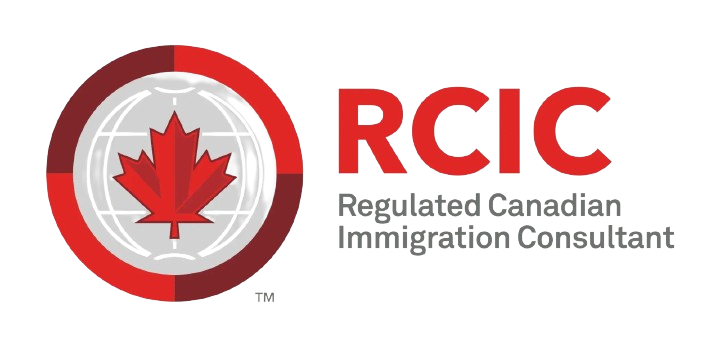
Attending a Medical Exam for a PR visa to Canada? Here are the things you need to know
An immigration medical exam is required for all applicants who are applying for Canadian permanent residence.
This exam is conducted by the panel physician authorized by IRCC. Depending on the purpose of the visa, Immigration Medical Exams (IMEs) are conducted by physicians, psychologists, and other credentialed healthcare professionals across nearly all medical specialties.
The IME results are completed by panel physicians and entered into the eMedical system (an online application that provides a paperless process for electronic recording, transmission, and storage of the IME results), which is later received by the “Global Case Management System (GCMS)” for evaluation.
There may be one or more of the following components to the medical examination:
- Physical examination;
- Mental examination;
- Review of past medical history;
- Laboratory test;
- Diagnostic test; and
- Medical assessment of records respecting the applicant.
Who has to appear for Immigration medical examination?
- Permanent Residence
- Temporary Residence
- Refugees
Permanent Resident applicants
A medical test is required of foreign nationals applying for permanent residency in Canada or applying to live there permanently. Only those candidates for permanent residence who fall under the live-in caregiver class are exempt from this rule (LC1). It’s crucial to remember that not all LC1 candidates are exempt, though.
Family members of foreign nationals
Each accompanying family member of a foreign person seeking a permanent residence visa or requesting to remain in Canada as a permanent resident is required to go through a medical check-up. Family members of foreign nationals may refuse to travel to Canada. With very few exclusions, these relatives must also go through medical testing. The following individuals are excluded:
- A protected person’s family member, if the family member is not listed in the protected person’s application to remain in Canada as a permanent resident;
- A foreign national’s unaccompanied family member who has submitted a refugee application.
Temporary resident applicants
- If the duration of the visit is six months or less
- If the duration of the visit is more than six months
- Work permit applicants under International Experience Canada
- Healthcare students who are work-permit exempt
- Other situations that require medical exams
Refugees
- Refugees seeking asylum in Canada;
- All foreign nationals who wish to enter or remain in Canada and are eligible to apply for protection under subsection A112(1), except those who have not left Canada since their application for or claim for refugee protection was denied;
- In order to work in Canada, refugee claimants, and their families must undergo medical examinations.
Medical Exemptions
Exemptions from undergoing an immigration medical examination
The following people are exempt from the medical examination requirement:
- Those entering or already in Canada to perform official duties, unless they intend to seek out or continue secondary employment in Canada;
- Those who are a family member of someone who fits the description in paragraph 186(b), unless they intend to seek out or continue secondary employment in Canada;
- A member of the armed forces of a nation that is a designated state as specified by the Visiting Forces Act, unless that person wishes to participate in or remain in secondary work in Canada;
- A non-accompanying family member of a foreign national who has applied for refugee protection outside Canada;
- A family member of a protected person who is not listed in the protected person’s application to remain in Canada as a permanent resident; and
- A foreign national who has applied for permanent resident status and falls under the live-in carer class.
Note: A person is considered a foreign representative under paragraph R186(b) if they are duly accredited by the Department of Foreign Affairs and International Trade and present in Canada to perform official duties as a diplomatic agent, consular officer, representative, or official of a nation other than Canada, of the United Nations or any of its agencies, or of a foreign organization of which Canada is a member.
Instructions for Border Services Officers
Instructions should be provided to the refugee claimant, and they should be reminded that a medical examination is due within 30 days.
Additionally, applicants can submit their applications before undergoing an upfront medical examination.
- The application guide specifies which categories require this.
- The Panel Physician will select the appropriate immigration category during the immigration medical examination.
- Depending on whether the Panel Physician submits the medical files to Immigration, Refugees and Citizenship Canada on paper or electronically (eMedical), after completing the upfront medical examination, the applicant will receive confirmation from the Panel Physician
You can either use the first page of the IMM 1017B-Upfront (“copy to client”); or
A printout from eMedical entitled “Up-front medical notification”.
The applicant must attach this proof of upfront medical examination to their visa application before submitting it.
eMedical Record Management Recommendations
In the absence of a risk to the patient’s physical or mental health, panel physicians are advised to provide the applicant with a copy of the IME. In accordance with their local regulatory and licensing standards, panel physicians are obligated to preserve copies and records of files for at least 2 years.
- The panel doctor must print a copy of the IME if he or she intends to do so before submitting the IME via eMedical.
- The panel physician cannot access the IME after it has been submitted via eMedical in order to make a duplicate.
Paper-based Immigration Medical Examinations
Depending on whether the Panel Physician submits the medical files to Immigration, Refugees and Citizenship Canada on paper or electronically (eMedical), after completing the upfront medical examination, the applicant will receive confirmation from the Panel Physician.
Managing Medical Examination Records for Paper-based Immigration
- The accountable RMO must receive original paperwork and information pertaining to an IME via postal delivery.
- Original documents must never be delivered to the RMO by the customer.
- Panel doctors are advised to offer the client a copy of the IME unless doing so would be harmful to the client’s physical or mental health.
- In accordance with their regional licensing and regulatory standards, panel physicians must maintain copies and recordings of files for at least two years.
- Tracking numbers for IME shipments should be kept on file by panel physicians for a period of six months.















